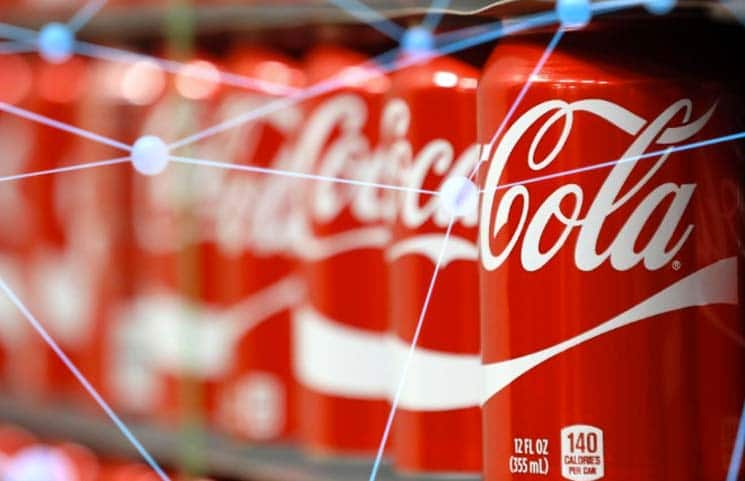Coca-Cola wants to integrate DeFi
2 min readThe North American supply chain of Coca-Cola is testing the use of the decentralized finance (DeFi) ecosystem. The new project, announced on Monday, was introduced by Coca-Cola’s technology partner, CONA Services (Coke One North America). It will set up a “Coca-Cola Bottling Harbor” to reduce technical barriers for suppliers and give supply chains access to decentralized financial applications.

CoCa-Cola is testing DeFi
The project runs on Baseline Protocol, a middleware solution for large companies. It allows them not only to communicate privately and perform transactions on the public ETH blockchain, but also to access DeFi applications and token assets. The protocol, launched in March 2020 by Ernst & Young, Microsoft and the Ethereum venture studio ConsenSys, enables confidential and comprehensive collaboration between businesses.
It offers a variety of tools. Some of them, such as zero-knowledge proofs, allow business transactions, smart contracts and communications to remain private when organizations use the public Ethereum network.
“Companies use different types of sophisticated internal systems internally, but when they communicate with each other, they mostly use e-mail, spreadsheets and EDI (electronic data interchange), which are basically text messages,” said Paul Brody, chief blockchain manager at Ernst & Young. when the Baseline Protocol was started.
Technological backbone
Baseline is not the first CONA integration. In 2019, the organization adopted Ethereum’s Hyperledger Fabric, which runs on the software multinational blockchain platform SAP. The intention was to streamline transactions across supply chains and increase the transparency of CoCa-Cola’s complex supply chain.
With the introduction of Baseline, CONA expands the use of the Ethereum platform. It wants to reduce technical and cost barriers for Coca-Cola suppliers outside its internal network, such as raw material vendors, by streamlining the supply process. Requests, proposals, orders, deliveries, invoices and payments can now be automated, minimizing errors and facilitating the integration of smaller vendors into the network.
In the CONA network, the extension to the Ethereum mainnet also enables a key function: the use of tokens that allow parties to access blockchain tools, such as loans, through DeFi applications. For example, a digital token representing a purchase order could be used by a supplier as collateral to raise working capital.
The introduction of the Baseline Protocol will allow Coca-Cola and its suppliers to use Ethereum for business transactions in the same way that people use it on the Internet, but more privately. In addition, there will be scope for extending the current implementation based on HyperLedger Fabric technology.
The project is to present its first results in the 4th quarter of 2020.
You might also like: The best crypto airdrops in August that you should not miss






